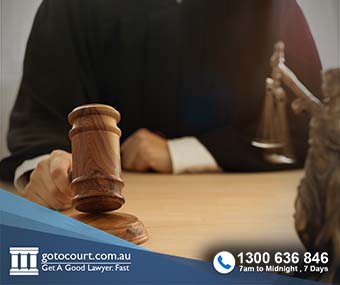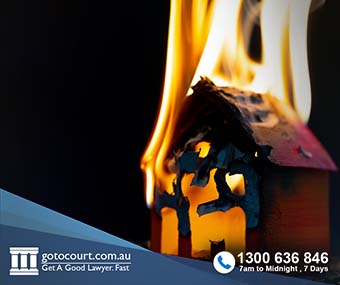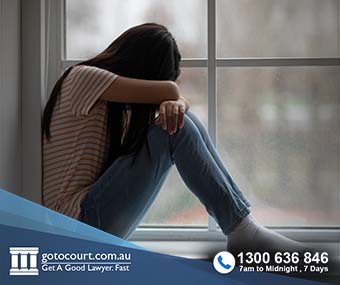Abolishment of De Novo Appeals (Vic)
New legislation has been passed in Victoria which will have the effect of abolishing de novo appeals. The Justice Legislation Amendment (Criminal Appeals) Act 2019 comes into effect on 1 July 2020. It will introduce changes including allowing the Court of Appeal to refer matters to the Supreme Court or County Court for certain determinations during an appeal or where there is an application for leave to appeal a matter. It will also provide a second or subsequent right of appeal against conviction in specific circumstances.
What are De Novo appeals?
De Novo appeals (meaning, appeals that start from the beginning) allow a defendant to challenge their conviction or sentence by way of a new hearing in an Appellant Court. Prior to the introduction of the new law, defendants that receive a conviction and/or sentence in the Magistrates Court or in the Children’s Court may file de novo appeals with a suitable court of higher jurisdiction (most commonly the County Court of Victoria).
When De Novo appeals are heard, the County Court must hear all submissions and evidence in the matter again and reach a new decision. This essentially results in an appeal being considered by the County Court ‘afresh’ or as a new hearing.
The Victorian Government has indicated that the key intentions of the new legislation are to minimise the amount of resources used by the court in the appeal process and to limit the necessity of victims to give evidence on multiple occasions.
What are the key changes?
The new legislation alters the appeal system for matters determined in the Magistrates’ Court and Children’s Court in several ways.
Abolishing ‘as of right’ appeals
Introducing provisions that abolish ‘as of right’ appeals. This means that defendants seeking to appeal against conviction where a plea of guilty was entered or where the defendant did not appear at the time that they were convicted and sentenced must apply for leave (permission) from the court. For matters in the Magistrates Court, where a Defendant did not appear at the time that they were convicted and sentenced, the Defendant must first seek to have the matter be re-heard by that court.
An application for leave, must be filed within 28 days of conviction and must be served on the Respondent within 7 days of being filed. This application must state; the nature of the appeal, the circumstances of the sought appeal (i.e. whether the application for leave to appeal related to a conviction whereby a plea of guilty was entered, and information dictated by the relevant court rules).
Remitting matters to Children’s Court
The new legislation allows a matter to be remitted to the Children’s Court (where appropriate) for reconsideration with or without a direction in law.
Summary of Appeal Notice
The changes require defendants seeking a matter to be considered by way of appeal (other than those that require leave to appeal, to which separate provisions apply) to file a Summary of Appeal Notice, outlining the grounds for the appeal, within 28 days of the filing of their Notice of Appeal.
Evidence
The changes limit the reconsideration of the evidence given in a summary hearing and only allowing consideration of new evidence in circumstances where the court deems this to be in the interests of justice.
Appeals against sentence
In relation to appeals against sentence, the legislation imposes a threshold condition that the County Court must only allow an appeal in circumstances where the court is satisfied that there are compelling reasons to impose a new sentence.
In this situation, the court must consider the sentencing remarks and considerations of the sentencing Magistrate.
Appeal process after the changes
Under the new legislation, consideration of appeals will be determined by the court in the following manner.
Conviction appeals
Where a party appeals against a conviction, the appeal will be determined based on the transcript of evidence and the submissions made during the original hearing.
Under the new framework, the County Court or Supreme Court (where suitable and appropriate) may only consider further evidence where the court considers it to be in the interests of justice.
The appellant will be denied the ability to examine, cross-examine or call new witnesses, without first obtaining leave of the court. Any application for leave to examine, cross-examine, or call new witnesses must satisfy the threshold prior to being granted.
These changes effectively mean that de novo appeals against conviction will no longer exist.
Sentence appeals
Where a party appeals against a sentence, the appeal may only be determined on the evidence and materials before the original court. This means that de novo appeals against setnence will no longer exist.
Appeals of this nature will only be considered if the County Court determines that there is a ‘compelling reason’ to impose a different sentence.
Defendants who appeal their sentence will have to satisfy the court that the sentence imposed was manifestly excessive for an appeal to be considered.
It is important to note that pending appeals and appeals filed prior to the commencement date of the new legislation will not be affected by the changes.
If you require legal advice or representation in a criminal matter or in any other legal matter, please contact Go To Court Lawyers.





